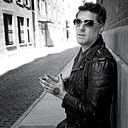
Member-only story
Occult Trinity: Austin Osman Spare, William S. Burroughs & Napoleon Hill
The surprising magickal confluence of three diffuse icons
One of the most influential occult figures in the immediate pre- and postwar eras was neither fortuneteller nor wonderworker but rather bravely innovative British graphic artist and writer Austin Osman Spare (1886–1956).
Through Spare’s experiments with breaking structures, rejecting formalism, and seeking to alter reality as we experience it in fleshly forms (our only means of experiencing it, he reckoned), the artist devised an anti-system of externalizing will, creating a visual language for the nonrational, and harnessing magick in a way that required no belief in the extraphysical — or in anything beyond results.

French consciousness theorist Émile Coué (1857–1926) ventured a juxtaposition that applies to Spare’s way of thought: “The French mind prefers first to discuss and argue on the fundamentals of a principle before inquiring into its practical adaptability to every-day life. The American mind, on the contrary, immediately sees the possibilities of it, and seeks . . . to carry the idea further even than the author of it may have conceived.” [1]

This approach of radical application animated Spare. The artist was, in a sense, an exemplar of William James’ philosophy of pragmatism: theory is distantly secondary to outcome. Spare, like James, desired measurable, if not always repeatable, results. In so doing, he pioneered the occult outlook of the postwar era — and ventured queries that superseded occultism’s cultural boundaries.
Born to a working-class family — including a doting policeman father who nurtured his son’s artistic gifts — Spare attained a spiral of off-and-on critical and gallery success as a painter and illustrator, but never enough to lift him from near-poverty, especially after losing his home in the Nazi bombing of London. According to rumor, the…
